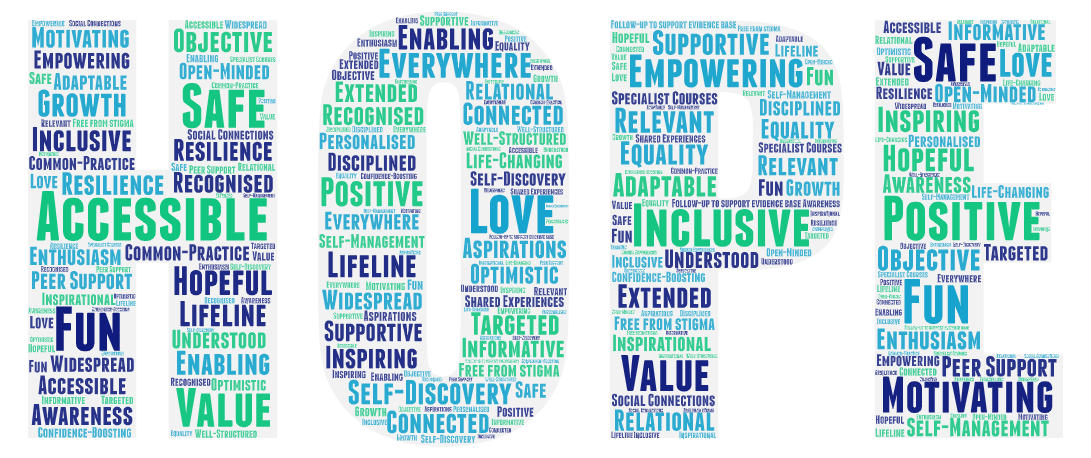Build back better mental health of people with long-term conditions
To mark World Mental Health Day (10 October) we ask: ‘What works in improving the mental health and wellbeing of people with long-term conditions and their carers?’ Over the last 7 months we have been working with Coventry University on two research studies to understand more about the impact of COVID-19 and to evaluate the effectiveness of self-management support for people living with and affected by a long-term condition during lockdown.
This year’s World Mental Health Day comes at a particularly challenging time for many of us. 2020 has been rough for lots of reasons, but especially because we are battling a worldwide pandemic that has caused a lot of fear, uncertainty, and disruption to our normal routines.
We know the whole world has struggled, but our research shows that it has hit the mental health and wellbeing of people with long-term health conditions and their carers particularly hard.
There are over 26 million people in the UK who live with at least one long-term physical or mental health condition and 10 million who have two or more.
Since the start of the pandemic in March, we have supported over 1,200 people living with cancer, multiple sclerosis or other physical or mental conditions, parents of autistic children and parents of children with cancer from across the UK.
As part of the research studies, we delivered our online Hope Programme - a 6-week self-management course based on positive psychology, mindfulness and cognitive behavioural therapy, built on 20 years of research evidence. On each course, we brought together 50 people with similar needs and experiences in a safe online space, supported by trained facilitators with lived experience.
Through interactive content, videos, completing quizzes, worksheets, audio materials, posting gratitude and setting goals as well as social networking messaging and forums, people built their knowledge, skills and confidence to self-manage whilst helping each other.
The initial findings have shown:
Over 40% of cancer survivors were clinically depressed and anxious before the Hope Programme, which went down to fewer than 15% afterwards
Over 50% of parents of autistic children were clinically depressed and anxious before the Hope Programme, which went down to fewer than 20% afterwards
“I have gained a more positive perspective. The course has given me strategies to help me to deal with my situation when I feel stressed or have a dark day. Hearing other people’s stories have made me realise I’m not alone and I have drawn strength. I felt empowered taking charge of my actions and making goals for myself”
Our online Hope Programme has proven to be a helpful intervention in improving mental health of people living with a long-term condition and their carers.
Using technology offered us an opportunity to innovate and rethink our approach to course delivery. The courses are currently delivered through our digital platform and virtually via MS Teams. We are trialling hybrid versions of the courses (online/offline) and working with partners to resume in-person delivery as soon as it is safe to do so. Scaling our impact includes co-designing new courses with users, making our technology more accessible and deepening support for the most hard to reach people.
Self-management and mental health crisis were here before the pandemic. “Building back better” for mental health of people with long-term conditions and their carers should start by adopting a public health and prevention approach. Any transformation of care or commissioning should start by asking those who use it “What does “better” look like now?
UPCOMING HOPE COURSES:
Hope For Carers – Coventry & Warwickshire
Starting 2/11/2020 and 11/01/2021 with registration opening next week. Follow our social media for updates.
Hope for Long-Term Conditions – Devon & the South West
Range of courses are offered, see Torbay and South Devon NHS Trust website for course dates and details.
Hope for Cancer Survivors
Macmillan Cancer Support have filled-up all available courses until the end of 2020. They plan to release new course dates in 2021.
Would the Hope Programme benefit you or your organisation? We can each play a vital role in helping to improve our mental health and look after ourselves and each other. If you are an organisation who would like to refer a full cohort of people onto our course, work with us or have Hope tailored to your needs, please get in touch.

